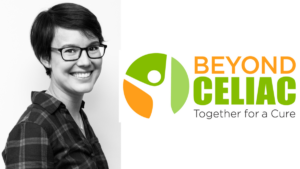Celiac disease is an autoimmune disorder that is triggered by the consumption of gluten, a protein found in barley, wheat and rye. When a person with celiac disease eats something that contains gluten, their immune system attacks their small intestine, damaging the lining and interfering with the absorption of nutrients from food.
The symptoms of celiac disease can vary and may involve abdominal pain, bloating, diarrhea, weight loss, fatigue and anemia. Because the symptoms can be like those of other digestive disorders, it can be difficult to diagnose celiac disease. A blood test can detect antibodies to gluten, but a definitive diagnosis requires a biopsy of the small intestine.
As of now, the US Food and Drug Administration (FDA) has not approved any drugs for the treatment of celiac disease. The only effective treatment for celiac disease is a gluten-free diet, which involves avoiding all foods that contain wheat, barley, or rye, as well as any processed foods that may contain hidden sources of gluten. With proper treatment, the small intestine can heal, and symptoms can improve, allowing people with celiac disease to lead healthy, normal lives.
However, there are ongoing clinical trials for celiac disease to investigate potential new treatments. Some of the approaches being studied include:
- Enzyme therapy: Researchers are testing enzymes that may help break down gluten in the digestive system, reducing the risk of immune system activation and damage to the small intestine.
- Vaccine therapy: Some researchers are developing vaccines that could help desensitize the immune system to gluten, reducing the severity of the immune response and potentially allowing people with celiac disease to consume small amounts of gluten without triggering symptoms.
- Drug therapy: Other researchers are investigating the use of drugs that could help reduce the immune response to gluten and prevent damage to the small intestine.
Overall, the state of clinical trials for celiac disease is promising, as researchers are actively working to develop new treatments that could help improve the lives of people with the condition.

Director of Research and Patient Engagement
Beyond Celiac
Beyond Celiac is a non-profit organization dedicated to raising awareness and funding for celiac disease research and advocacy. Founded in 2003, the organization’s mission is to advance research, improve diagnosis, and accelerate the discovery of new treatments and a cure for celiac disease.
To learn more about the state of clinical trials for celiac disease, Xtalks spoke with Kate Avery, Director of Research and Patient Engagement, at Beyond Celiac. Avery discusses how Beyond Celiac aims to spread awareness about clinical trials for celiac disease, the patient barriers that could be encountered and more. Read on to learn more from Avery.
How does Beyond Celiac spread awareness about research and clinical trials for celiac disease?
Kate Avery: Since 2016, Beyond Celiac has assisted many clinical studies in all phases. To help spread awareness about these trials, we regularly write and post articles about the latest in celiac disease research on our website’s Research News Feed and then share these articles with our community via emails, social posts, events and more.
When the research first showed that the gluten-free diet wasn’t enough and that many were not healing or having difficulty with the diet, many in the community bristled at the idea of pharmaceutical treatments for celiac disease. However, through years of dedicated, thoughtful and trustworthy communications with our community, a majority are now aware of the shortcomings of the diet and are hoping for actual pharmaceutical treatments and a cure.
Our organization also now has its own research granting program, funding the best research around the globe and highlighting their results via our regular communications and semi-annual Research Summit. Our research grants are going a long way to accelerating clinical understanding of celiac disease, moving treatments forward and getting patients excited about the future.
What are some barriers that patients with celiac disease voice about participating in clinical trials for non-dietary therapies?
Kate Avery: There are several reasons someone with celiac disease may not participate in a clinical trial. Some simply feel like the gluten-free diet is enough for them; they have healed and are managing it well. However, many still aren’t healing on the diet or find it incredibly limiting or isolating.
For those who want to participate, barriers often include not having their biopsy results, being too far away from a study site, or not being able to tolerate a gluten challenge, which many trials require.
We like to say that not every trial is suitable for every person. If someone is highly reactive to gluten, with severe symptoms at even tiny amounts, a trial with a gluten challenge is probably not a good option for them.
However, there are ways everyone can get involved, from completing research surveys in our Go Beyond Celiac patient registry to non-interventional research projects, to screening studies and all the way up to clinical trials for treatments featuring gluten challenges.
How is Beyond Celiac overcoming patient barriers in clinical trials?
Kate Avery: Last year we launched the Beyond Celiac Coalition, a multidisciplinary group breaking down barriers to clinical trials in celiac disease. Members of the group include representatives from pharma, biotech, diagnostics, academia and more. We’ve recently identified a specific collaborative project for 2023 that we’re very excited about and can’t wait until we can announce it.
Additionally, we have held three Research Summits to bring together key stakeholders to discuss important topics in celiac disease research. Our 2022 Research Summit saw discussions about pediatric clinical trials for celiac disease treatments and diversity and disparities in celiac disease diagnosis, two topics that aren’t receiving as much attention elsewhere in the world of celiac disease.
How can patient recruitment and retention be improved? Do you think decentralized technologies can help with this?
Kate Avery: In regard to retention, for trials including gluten challenges, using food that actually tastes good versus a gluten slurry could be helpful.
Decentralized technologies could help with one of the issues with celiac disease clinical trials. Currently, there aren’t very many physical sites where clinical trials take place. If there were decentralized trials, where potential participants live would not limit their participation in a clinical trial.
Beyond Celiac does work with pharmaceutical companies to improve their clinical trial protocol designs to make them easier on potential participants. For example, in looking at trial designs, we might suggest that some visits are either virtual visits or home visits if possible. This makes the trial easier to participate in.
We want celiac disease clinical trials to be successful, and making the trials easier on the participants is one way to make them have a higher probability of success.
Is Beyond Celiac working with sponsors to help improve patient engagement?
Kate Avery: Yes, Beyond Celiac works closely with pharmaceutical companies conducting clinical trials to help refine their approaches and make the trials as patient-centric as they can be.
In order to have a treatment beyond the gluten-free diet, we need people to participate in clinical trials.
We try to offer guidance on how to make clinical trials the best they can be for participants so people with celiac disease will want to participate.












Join or login to leave a comment
JOIN LOGIN